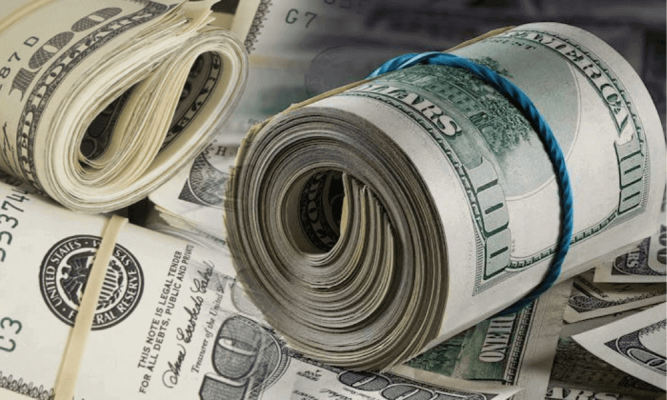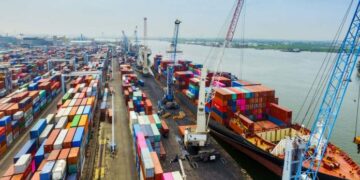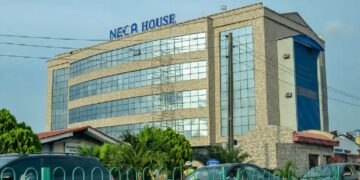Foreign exchange utilisation for visible imports totalled $1.47 billion in October 2024, with the industrial sector accounting for the lion’s share of 56.88 per cent, according to a report by the Central Bank of Nigeria (CBN).
This was followed by food products at 15.35 per cent, oil sector imports at 13.50 percent, manufactured products at 8.13 per cent, minerals at 3.14 per cent, transport at 2.58 per cent, and agriculture at 0.42 per cent.
The CBN’s economic report for October 2024 highlights notable developments in the nation’s foreign exchange utilisation, merchandise imports, and capital flows, underscoring a mixed but significant trajectory in economic activities.
The report attributed the increase in merchandise import bills to a rise in both oil and non-oil imports.
Provisional data showed a slight uptick in total imports, which climbed to $2.81 billion in October from $2.78 billion in September 2024. A closer analysis revealed that non-oil imports grew to $2.18 billion from the preceding month’s $2.16 billion, while petroleum product imports saw a modest increase of 0.90 per cent, reaching US$0.62 billion.
Capital inflows into the country witnessed an impressive surge, driven primarily by a significant boost in portfolio investments across equity and money market instruments. The total inflow rose dramatically to US$1.89 billion in October, compared to US$0.40 billion recorded in September.
The report noted that portfolio investment inflows soared by 403.57 per cent to $1.41 billion, a development it attributed to increased purchases in equity and money market instruments. Similarly, foreign direct investment (FDI) increased by a remarkable 350 per cent to $0.18 billion, while other investments, such as loans, grew by 275 per cent to $0.30 billion.
“Portfolio investment inflow constituted 74.65 per cent of total capital inflow, followed by other investments at 15.80 percent and direct investment at 9.55 percent,” the report stated.
Sectoral analysis revealed that the banking sector received the largest share of capital inflow, accounting for 49.21 per cent.
This was trailed by the financing sector at 26.12 per cent, production and manufacturing at 9.72 per cent, brewing at 5.55 per cent, telecommunications at 4.65 per cent, construction at 3.39 percent, shares at 0.73 per cent, while other sectors made up the remaining portion.
The United Kingdom emerged as the dominant source of capital, contributing 54.80 per cent of the total inflow. The United States followed with 13.89 per cent, while the Netherlands, South Africa, Singapore, and Mauritius accounted for 8.88 per cent, 8.12 per cent, 4.30 per cent, and 3.10 per cent, respectively.
Other countries constituted the balance. On the domestic front, Lagos State and the Federal Capital Territory were the sole recipients of foreign capital, receiving 55.23 per cent and 44.77 per cent of the inflows, respectively.
Meanwhile, capital outflows also increased during the review period, primarily driven by higher loan repayments and dividend repatriation.
Total outflows rose to US$0.80 billion in October, up from US$0.67 billion in September. Loan repayments jumped by 66.31 per cent to US$0.28 billion, while dividend repatriation increased by 70.68 per cent to US$0.07 billion.
Capital reversals, accounting for 57.45 per cent of total outflows, saw a slight rise of 1.90 percent to US$0.46 billion. Loan repayments and dividend repatriation made up 34.40 percent and 8.11 percent of the total, respectively, with other forms of outflows contributing the remainder.
These findings provide critical insights into Nigeria’s economic landscape, reflecting growth in capital inflows but also signaling persistent challenges in managing outflows and import dependencies.











